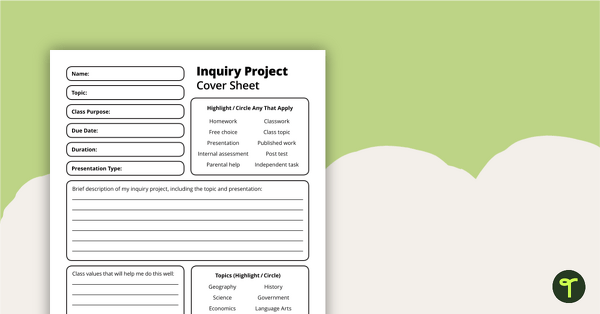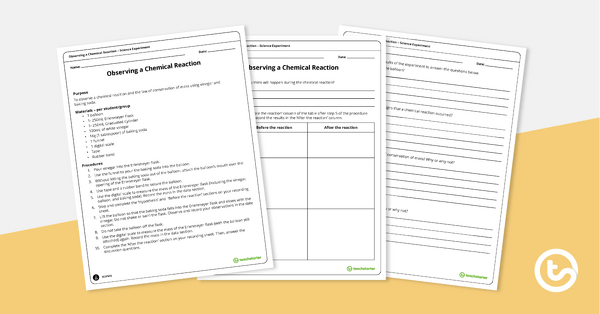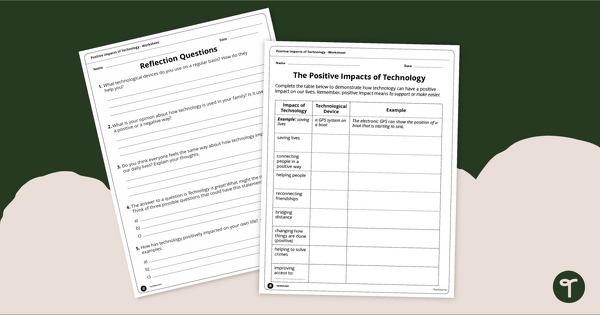Science 6.3
Scientific investigation and reasoning. The student uses critical thinking, scientific reasoning, and problem solving to make informed decisions and knows the contributions of relevant scientists. The student is expected to:
(A) analyze, evaluate, and critique scientific explanations by using empirical evidence, logical reasoning, and experimental and observational testing, so as to encourage critical thinking by the student;
(B) use models to represent aspects of the natural world such as a model of Earth's layers;
(C) identify advantages and limitations of models such as size, scale, properties, and materials; and
(D) relate the impact of research on scientific thought and society, including the history of science and contributions of scientists as related to the content.
- Free Plan

Inquiry Project - Template
A diverse template to help students craft inquiry questions to produce different types of research projects.
- Plus Plan

Science Experiment - Observing a Chemical Reaction
A science experiment that investigates chemical changes and the law of conservation of mass.
- Plus Plan

The Impact of Technology - Positive Impacts Worksheet
Exploring the positive impacts of technology in the community with a pair of printable worksheets.